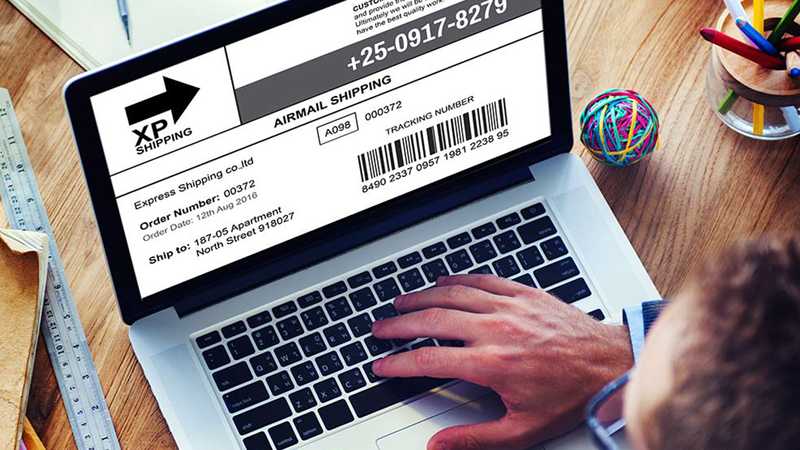
Planning, scheduling, and managing shipments have always been complex activities. The invention of digital platforms, advanced logistics software solutions integrated with artificial intelligence and advanced algorithms, etc., have changed the scenario. Nowadays, shipping companies and logistics service providers explore state-of-the-art digital solutions for delivering the best services to clients.
The shipping and logistics management chain goes through various levels of distribution and transportation. Consistent monitoring is the key to maintaining a seamless support system. Freight forwarding companies must tame technology and use modern digital platforms to overcome challenges. Lets see how a digital freight forwarding platform overcomes key challenges.
Challenges Faced by Freight Forwarders
Geopolitical situations, adverse climate, uncertainty on procurement, shortage of supply, and many other issues can plague the performance of freight forwarding as well as logistics companies. Without addressing the problems and implementing productive measures, you cannot expect the company to deliver the services as promised.
We are highlighting a few of the challenges encountered by freight forwarders globally.
1.Fluctuating (rising) Fuel Prices Across the World
The increase in fuel prices is a global concern. Any situation can affect the fuel price, owing to variations in demand, sanctions, and production issues. The latest issue that led to a rise in fuel prices is the Russia-Ukraine conflict. The increase in fuel costs will hit freight forwarding adversely. Normally the shipping company has a leeway that helps them in avoiding a rise in shipping charges in tandem with the fuel prices. The situation worsens when the fuel costs go beyond the acceptable limits. They are forced to increase the shipping charges accordingly.
The only way to resolve the issue is to embrace technology. A good freight forwarding software aids you in identifying the best routes, reducing the processes to prevent waiting periods at ports, and implementing advanced strategies for improving productivity are the ways to reduce the impact of fuel price
2. Handling Client Expectations May Become an Uphill Task
Advancements in technology and competition among freight forwarding companies have increased customer expectations. They want the service-providing agencies to be more proactive than before and expect every piece of information at their fingertips. The clients are least bothered about the complications involved in freight forwarding. All they want is a perfect service without any kind of excuse from the freight forwarder.
Digital technology aided by artificial intelligence is the solution to this issue. The logistics and shipping company can set alerts to provide info to the consignee regarding the status of the shipment. Moreover, the client can track the consignment online without the need to contact the shipper repeatedly.
3.A Seamlessly Connected System Supported by Efficient Management
Human errors can happen even if expert professionals are handling the tasks. Lacunae may appear from nowhere and can damage the reputation of the company. The management team plays a pivotal role in handling crises and unforeseen diversions. Any miscommunication or erroneous management decisions can hamper the performance of the company.
A digital platform can reduce the possibility of errors effectively. Real-time info is available in the portal with data on the exact location of the shipment. Notifications from the shipper regarding the ETA, as well as alerts when the cargo leaves the warehouse towards the consignee’s facility, help the client remain prepared to receive the items.
4. Ambiguities Regarding Contractual Obligations
The shipment process is not a localised one. People from different regions will be involved during the shipping, segregation, loading, and unloading of the cargo. The contractual concepts might vary from country to country. There is a high probability of altercations and confusion due to the same. Digital platforms will provide detailed and accurate information, preventing such doubts.
Digital freight forwarding companies will have a simplified interface that would offer a clear idea of the consignment, shipping process, and other requisite steps. Moreover, the streamlined process will provide accessibility to information on the consignment, accurate reports, and constant tracking of the movement.
What are the Benefits of Digital Freight Forwarder Platforms?
Logistics and shipping companies around the globe have started exploring digital platforms for freight forwarding. Even though this is the scenario, there are several companies still apprehensive about it. How a digital freight forwarder platform overcomes key challenges are given below:
Boost the efficiency and productivity of the firm Create seamless connectivity with the customer by offering them real-time tracking Reduce the expenditure on shipping and gain more clients, besides improving the profit Augment the safety and security of the cargo with an effective tracking system in place Better management of the shipment and prevention of any lacunae Control the manpower expenses by using digital technology for monitoring the shipment and sending out alerts automatically
Digital freight forwarder platforms help in overcoming challenges by creating a versatile, transparent, and cost-effective domain. It has a significant role in strengthening the bond between the client and the service provider. The digital systems would help improve the performance of the company and would generate positive word-of-mouth publicity.
What do you think about the role of digital platforms in freight forwarding?
Share your observations and opinions with us.




